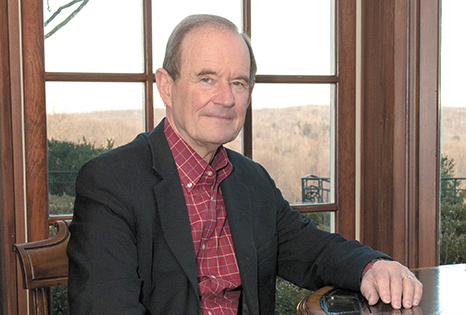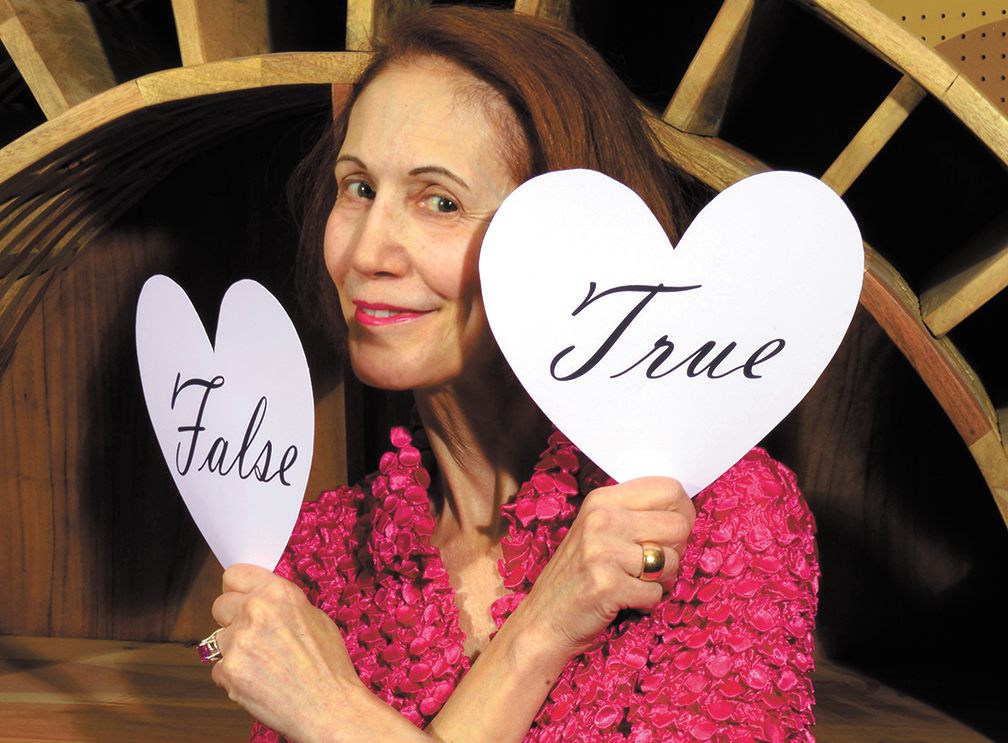In 2016, David Boies will be gathering with 60 of his nearest and dearest, including his six children and nine grandchildren, for a biannual family reunion in Sycamore, Ill., where he – the man who defended Sony in the recent North Korean hacking scandal and represented Al Gore in the tangled mess that was the 2000 presidential election – was born and raised.
The return to the farming community – he calls it “cow country” – where he spent his boyhood will be a special occasion as Boies and his family mark the 100th anniversary of the birth of his father (David Sr.).
“He was a major influence in shaping my passion for justice,” Boies says. “As a high school teacher of American history, he instilled in me a deep appreciation about how far we have become a more just society since our country’s founding and how much more we need to do to make sure people have access to all the rights our free society offers.”
Those inspiring lessons, amplified by his mother, Mary, who was also a teacher, occurred shortly before the Civil Rights Movement unfolded. It served as a dramatic backdrop and parallel while Boies attended high school and then Northwestern University. Boies received his bachelor of science degree in 1964, the same year that the landmark Civil Rights Act was passed by Congress and signed by President Lyndon Johnson.
At that time, Boies recalls, “I was still on the fence as to whether I wanted to follow in the path of my parents and become a teacher or an attorney.” Even when he attended law school – first at Yale University, where he graduated in 1966 magna cum laude with a Bachelor of Laws degree and then a year later at New York University where he earned a Master of Laws degree – he thought there would be a good chance that he would end up teaching.
Fortunately for the advancement of civil rights, the call of the courtroom won out. As a young attorney, he volunteered with the Lawyers’ Committee for Civil Rights in Jackson, Miss. Over time he filed a number of lawsuits relating to civil rights issues, including one in 1986 against the Republican National Committee, ending its discriminatory practice of targeting minority districts with voting ballot security programs, not uniformly applied, that essentially discouraged minorities from voting.
In 2009, the Armonk resident would take great pride in his work as co-lead counsel in a high-profile case, Perry v. Brown, which overturned Proposition 8 in California prohibiting same-sex marriage. In an interview published in the October 2014 issue of New York Metro Lawyers, Boies says: “My whole experience as a lawyer has been in the context of trying to vindicate the promises that our Constitution and our founders made. I believe that the issue of discrimination against gay and lesbian citizens, is, as the racial discrimination issue was the defining civil rights issue 50 years ago, the defining civil rights issue of this century.”
Though a number of states have approved the constitutional right of gays to marry, “the battle is far from over,” Boies says. “There is much more work that needs to be done to end discrimination on this issue.”
Indeed, for someone who will turn 74 in March, Boies sounds like a young attorney who is just starting to roll up his sleeves a to help create a more just society.
“There is a tremendous amount of justice that needs to be done to end discrimination in a host of areas besides race and gender. In Florida, we are working on litigation to help indigent children receive adequate medical care.”
Education is another civil rights area that Boies feels very strongly about.
“We have pending cases to prove people who live in poor districts are discriminated against because of the way education is funded, which is on a local basis. If you live in a poor district, education is often not properly funded. Yet a good education is absolutely essential in order to fully participate in society, to get a good job and to raise a family.”
He noted that the policy is not only “fundamentally unfair to individuals but detrimental to our country’s competitiveness. At a time when the cost of a college education has become prohibitively expensive, community colleges are critically important in helping to close this gap by providing large swaths of the population with the skills they need to succeed.”
Boies’ legendary career – he brought a successful antitrust suit against Microsoft, represented the late New York Yankees’ owner George Steinbrenner in a suit against Major League Baseball and defended CBS in a libel action brought by Gen. William Westmoreland, among other high-profile cases – led Washington Monthly to hail him as “a latter-day Clarence Darrow,” after the lawyer who defended evolution teacher John T. Scopes in a 1925 case that inspired the play and movie “Inherit the Wind” and still resonates today. In 2010, Time magazine named Boies one of its most influential people.
His accomplishments are all the more remarkable considering that he is dyslexic and did not learn to read until the third grade. (He’s still a slow reader.) But Boies thinks that his dyslexia was a motivating factor in his success, because he learned to compensate for his disability by slowing down and focusing on the salient points of written information, analyzing them critically and developing a keen memory.
In coping successfully with dyslexia, he became a role model for two of his children who are dyslexic as well as others. In a profile by The Yale Center for Dyslexia & Creativity, he recalls telling his children: “I know what you’re going through, for I’ve been through that myself, and let me tell you from my own experience, it gets better.’”
Since 1997, Boies has served as chairman of Boies, Schiller & Flexner LLP, which has emerged as one of the nation’s premier law firms, with more than 200 attorneys practicing in multiple offices across the nation. When not leading this large enterprise or preparing for his next court argument, Boies spends quality time with his number one love – his family. He especially looks forward to family gatherings at Christmastime, which are celebrated every other year on a rotating basis with the family reunions.
He also enjoys sailing two or three times a year. But his favorite pastime, one that started about 30 years ago, is taking bicycle tours in Europe with his wife, Mary, a founding partner of the law firm Boies & McInnis LLP.
“It’s a great way to see villages, because you are going slow enough – 35 to 60 miles a day – so that you can really see what’s before you,” he says.
As with reading – and maybe pursuing justice as well – taking it slow enables Boies to savor and gain what might otherwise be lost.



